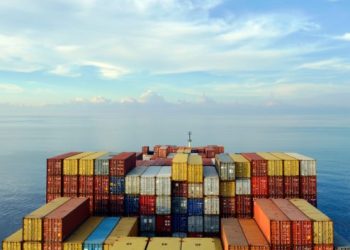An accident that should not have happened
All of us in the maritime industry have spent sufficient time reading about the Costa Concordia disaster. So I will not bore the readers with details that they already have. Many of you are better qualified than I am to determine the “how and why” of this case. Investigators from underwriters, coast guard, classification society (RINA in this case) must be hard at work looking for all the evidence and putting together the various pieces of the puzzle to get to the root cause.
Accidents happen. They are a fact of life. Planes crash, bridges collapse, trains collide not to mention the car accidents I see everyday as I drive thirty miles each way on theexpressway from my home to office & back.
But here is one accident that should not have happened. This one was not because of machinery failure or navigational error or weather or act of god or any of that. It was because of stupidity. It was about a man’s ego and narcissism interfering with his rational thinking making him reckless and dangerous.
The cruise industry is not a transportation industry. It is a hospitality and entertainment industry. It is “show biz”. So though it is governed by mostly the same rules and regulations, things are often done differently.
For example
- An oil tanker or cargo ship (regardless of its size) will never deliberately navigate so close to the shore.
- A berth to berth passage plan on a tanker would not have allowed a casual deviation towards Isola Del Giglio.
- Most tanker operators have a zero tolerance policy on board. Most cruise ships don’t.
- Very rarely will a tanker master allow unauthorized personnel on the bridge especially when the vessel is in a situation that demands great concentration. (I refer to the presence of the Moldovan lady on the bridge when the Concordia hit the rocks)
And so on and so forth……….
I don’t know anything about Capt. Schettino. I assume that he is (or was) a fine Master and perhaps a fine man. In my opinion he was simply a victim of the industry and the prevailing culture.
On a cruise vessel, the Master has a god like status. He lives in accommodations not afforded by most and eats 5-Star meals served by his own personal valet and sips fine wines from around the world. People are always trying to please him, women (whether crew or passengers) are willing to throw themselves at his feet and passengers vie to be invited to sit at the Captain’s table. A recipient of constant accolades, he is greetedeither by awestruck silence or childlike excitement normally accorded to Hollywood stars as he walks down the alleyway. It is no surprisethen, that their egos are often bigger than the ships they command.
Under these circumstances it must be difficult to maintain that fine balance between being”competent or cocky” or “being reliable or reckless”.
The industry will now look for answers and fixes. More regulation may come forth. More audits may become mandatory. But is this really about regulations or audits or watertight compartments or dead-man alarms? Or is it about a culture change? And what really can bring about a culture change?
We all look for “lessons learnt”. That is what we are trained to look for. “Root Cause Analysis” and “Lessons Learnt!” So when the incident is forgotten and the facts become fuzzy, will we remember about the human frailty that really led to this uncalled for tragedy?And will other cruise Masters learn and remember the right lesson from this incident? Or will they continue to act in a reckless and dangerous manner because it gets them the applause and pampers their ego?
Only time will tell.
Capt.Nitin Vaidya
Operations and Fleet Personnel Manager at Ship Management Services Inc




























































